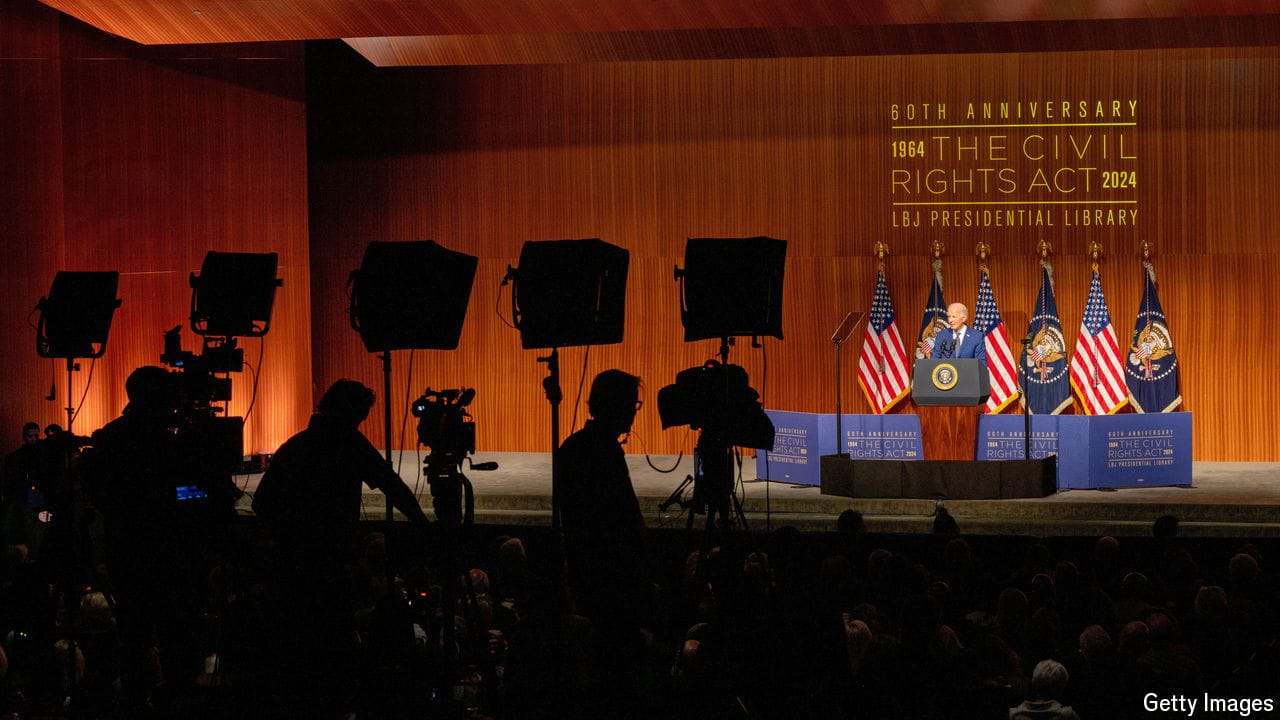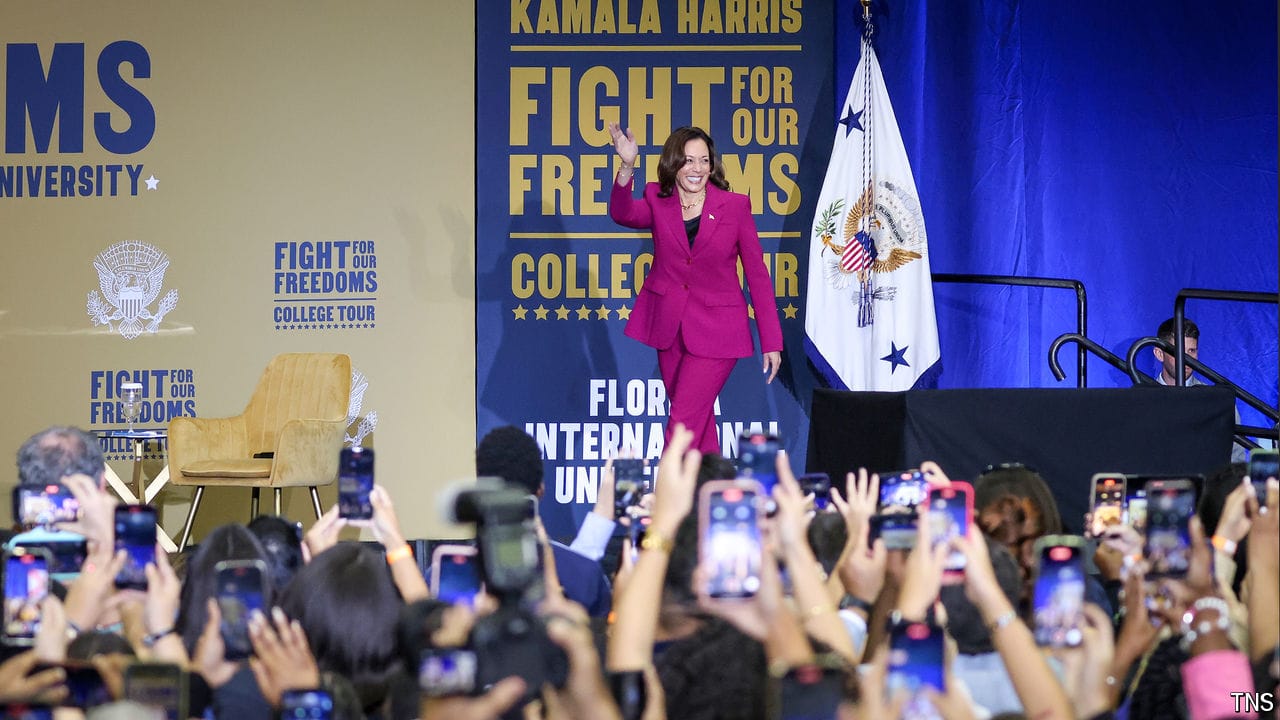America’s political scientists are worried about “lethal partisanship”
About 40% of partisans consider supporters of the other side to be downright evil

THE TAGLINE for the annual meeting of the American Political Science Association (APSA) held in Seattle last weekend read “Promoting Pluralism.” Under the sunny geometric windows of the city’s convention centre, and through the poorly lit rectangles of Zoom rooms, scholars met to discuss, among other things, the various threats to American democracy, and whether the country’s polarised political parties could peacefully coexist. Like experts on the use of nuclear weapons during the Cold War, the spectre of some disastrous future hung over the discussions and was made only slightly less alarming by the technical language used to describe it.
Scholars of American politics are particularly dismayed by rising levels of “affective polarisation,” the political science term for the hostility one person feels towards members of the other party relative to the feelings they have towards members of their own party. Levels of affective polarisation have risen more than two-fold since the 1970s when the American National Election Studies, a quadrennial academic survey started at the University of Michigan, began asking citizens to rate how they felt about members of either major party. In 1978, according to the survey, the difference between Americans’ ratings of members of their own and ratings of members of the other party on a 100-point “feeling thermometer” scale was 27 points. The gap had widened to 56 by 2020.
This article appeared in the United States section of the print edition under the headline “Polarisation explorers”
United States October 9th 2021
- Why can’t America quit flirting with financial ruin?
- Why the latest series of Facebook leaks is more politically potent
- The incomes of America’s poorest are growing faster than those of its richest
- America’s political scientists are worried about “lethal partisanship”
- Chicago re-examines its origin story 150 years after the great fire
- President Biden is weighing how extensively to use drones
- Disciplined Democrats look likely to pass Joe Biden’s domestic agenda
More from United States

The demise of an iconic American highway
California’s Highway 1 is showing the limits of man’s ingenuity

How the election will shape the Supreme Court
A second Trump administration could lock in a conservative supermajority for decades

Could the Kamala Harris boost put Florida in play for Democrats?
Some party enthusiasts think so, but realists see re-energised campaigning there as a savvy Florida feint
America is not ready for a major war, says a bipartisan commission
The country is unaware of the dangers ahead, and of the costs to prepare for them
The southern border is Kamala Harris’s biggest political liability
What does her record reveal about her immigration policy?
